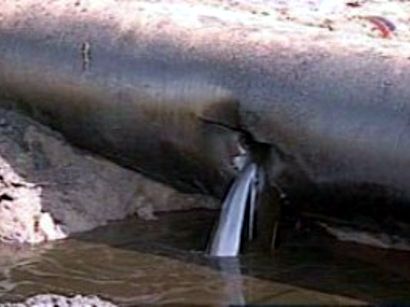The Group Managing Director of Nigerian National Petroleum Corporation (NNPC), Dr Maikanti Baru, has appealed to militants in the Niger Delta to stop attacks on oil facilities.
Baru made the appeal at the 26th edition of the Society of Petroleum Engineers (SPE) Oloibiri Lecture Series and Energy Forum (OLEF) on Thursday in Abuja.
According to him, with Nigeria’s enormous reserves in gas as the 9th largest in the World, unemployment and infrastructural challenges can be tackled but the disruptions are crippling activities like power generation.
“On this note, I will like to use this medium to appeal to the militants in the Niger Delta to stop the attack on pipeline infrastructure to enable us sustain our plan and grow the industry for the benefit of all Nigerians.
“Gas pipeline vandalism has been the most disruptive challenge to supply across the country, but more recently in the West.
“The Trans-Forcados crude oil pipeline (TFP) has been the major victim of attacks, so also the ELPS gas pipeline has seen surprising increase in attacks.
“As we speak today, there is enough gas to generate about 4,800 megawatts and 6,000 megawatts by second quarter of 2017, based on our gas supply plan.
“However, the power sector is presently struggling to evacuate 4,500 megawatts power due to DISCOs’ incessant rejection of allocated load and transmission line constraints,’’ he said.
Baru said that interventions in the sector yielded results on Feb. 2, 2016 as a record high peak generation of 5,079 megawatts (86 per cent thermal) was attained, but that incessant attacks on pipelines significantly affected gas supply.
He said that in spite of challenges, NNPC was committed to ensuring adequate gas supply to meet Nigeria’s industrial growth.
He said that strategic repositioning of the sector was ongoing to support massive gas-based industrialization to place Nigeria as the regional hub for gas-based industries such as fertilizer, methanol and petrochemicals.
“The first of this effort is the planned 30 square-kilometre Gas Revolution Industrial Park in Delta which will be Africa’s largest gas industrial park, supporting gas-based industries.
“Also, we have successfully completed a pilot programme to introduce natural gas as fuel for transportation through Compressed Natural Gas (CNG).
“Today, over 4,000 cars, mostly commercial taxis, run on natural gas in Benin, served by a network of six gas-filling stations. We are currently extending the CNG initiative to other parts of the country.
“Apart from the obvious environmental benefits, use of gas in transportation is cheaper; taxi drivers save significantly on petrol cost as CNG is sold at 46 per cent of the price of petrol.’’
The GMD said that CNG was not only cheaper but was neater, cleaner, pilferage-free, burned cleaner and had become the fuel of choice for power globally.
Speaking to journalists shortly after his remarks at the lecture, Baru said that the Oben-Geregu (196km), Escravos-Warri-Oben (110km), Emuren-Itoki (50km), Itoki-Olorunsogo (31km), Imo River-Alaoji (24km), Ukanafun-Calabar (128km) had been successfully implemented.
He added that strategic East-West Obiafo/Obirikom to Oben (OB3) pipeline (127km), looping of the Escravos-Lagos Gas Pipeline System from Warri to Lagos and Ajaokuta-Abuja-Kaduna-Kano pipeline (650km) were currently ongoing and at various stages of completion. (NAN)

